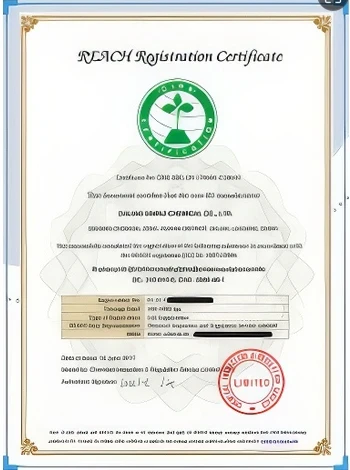



sodium hydrogen sulphate uses
Sodium hydrogen sulfate, also known as sodium bisulfate or sodium acid sulfate, is a versatile chemical compound with a variety of applications in different industries. Its chemical formula is NaHSO4, and it typically appears as a white crystalline solid. This compound is an essential ingredient in various processes, making it one of the significant players in chemical manufacturing.
One of the primary uses of sodium hydrogen sulfate is in the manufacturing of pH regulators. It finds extensive application in swimming pools and water treatment facilities, where maintaining appropriate pH levels is crucial. In swimming pools, sodium hydrogen sulfate is used to lower the pH level of the water, thereby ensuring that the pool remains safe and pleasant for swimmers. It prevents the water from becoming too alkaline, which can cause skin irritation and interfere with the effectiveness of chlorine as a disinfectant.
.
Moreover, sodium hydrogen sulfate is used in the food industry as a food additive. It acts as an acidity regulator and a preservative. It can help maintain the desired taste profile of food products and enhance shelf life by preventing microbial growth. As a result, it is commonly found in various food items, including sauces and beverages. However, its use is regulated, and it must adhere to strict safety standards to ensure that it is safe for consumption.
sodium hydrogen sulphate uses

The compound also plays a role in the cleaning and maintenance sector. Sodium hydrogen sulfate is utilized in household cleaning products and industrial cleaners, particularly for descaling purposes. Its acidic properties make it effective in removing limescale and other mineral deposits from appliances like dishwashers and coffee machines. This ability to effectively break down deposits makes it an invaluable asset for both residential and commercial cleaning.
Additionally, sodium hydrogen sulfate is used in laboratory and analytical applications. It serves as a reagent in various chemical reactions, providing a source of sulfate ions. In analytical chemistry, it is used to prepare samples and in titrimetric analyses to establish the concentration of other substances in solution.
In conclusion, sodium hydrogen sulfate is a multifaceted compound with a wide range of applications across several industries. From its role in pH regulation in swimming pools and textile dyeing to its use as a food additive and in cleaning products, its versatility is evident. As industries continue to evolve and seek efficient and effective solutions, sodium hydrogen sulfate is likely to remain a crucial component in diverse applications, underscoring its significance in contemporary chemistry and manufacturing.
-
High-Purity Strontium Chloride (SrCl2) for Lab & IndustryNewsAug.31,2025
-
Anhydrous Formic Acid 80% 85% 94% - High Purity SolutionsNewsAug.30,2025
-
Accurate Fire Assay Flux for Gold & Silver Ore AnalysisNewsAug.29,2025
-
Advanced Paint Chem Solutions: Quality Chemicals for CoatingsNewsAug.28,2025
-
Potassium Nitrate: The Ultimate Fertilizer for Agriculture and GardeningNewsAug.25,2025
-
Potasium Persulphate: A Versatile Chemical for Industrial ApplicationsNewsAug.25,2025
-
Industrial Applications of Sodium HydroxideNewsAug.25,2025










